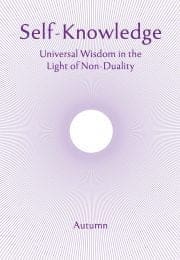The Light of Lights
From a Lecture by Hari Prasad Shastri
I have known the great self-effulgent essence beyond darkness, knowing which one overcomes death. There is no other way to proceed.
Shvetashvatara Upanishad 1:11
A lamp shines under the light of electricity; electricity shines under the light of the sun; the sun shines under the light of the gases that compose it. Then what shines under its own light? That light which is shining through all is the light of the supreme Reality, that is, God. None of the other objects are self-effulgent, but the light of God shines through all. It is self-effulgent.
When in silence you think ‘I am’, then you are conscious. ‘I am’ is not nothingness. The Advaita philosopher, Sureshvara, refuted this once and for all when he said: ‘What is that which experiences the darkness? If That is there, then the assertion that all is nothingness falls to the ground.’
There must be a subject of ‘I am’. It cannot be part of the intellect. The eyes cannot see by themselves, the ears cannot hear; it is the mind that sees through the eyes, but the mind cannot see the subject of ‘I am’, the eyes cannot see themselves. Then under what light do you apprehend the object of ‘I am’?
What is light? It is that principle that brings something from obscurity, and it is by the light of ultimate reality that we know ‘I am’. We may forget all we have ever seen, touched or heard, but you cannot negate ‘I am’. The light under which the object of ‘I am’ is apprehended is the light of Atman (the real Self), or we could say it is the light of God, who is self-effulgent.
Where is that Reality? It is beyond darkness and is not touched by it. Darkness means veils, conditions. The opposite of light is darkness, that is, ignorance, nescience. Here the phrase ‘beyond darkness’ is used figuratively. The meaning is ‘that great effulgence abides in light, in the region where there is not a shadow of doubt, not a bit of suspicion nor room for question in his existence or nature’, therefore it is said ‘He is beyond darkness’.
A sceptic might say to you: ‘You know Him, but what has it given you?’ It is not like knowing a star of the twelfth magnitude; I may say, ‘I know Juno’, then what has the knowledge given me? If it is only pride of knowing then it is better not to know. In this text it is said, ‘I have known the great self-effulgent essence’ and what is the net result in our life? ‘Knowing it, one overcomes death.’ The meaning is, one transcends death, one becomes identified with That within us that is unapproachable by any change. Death is a radical change from which there is no recovery, but from the high state referred to in the text, there is no change, there is no death whatsoever and ‘there is no other way to proceed.’
Subscribe or enrol for free guest access to read all of this article and Self-Knowledge online.
Already subscribed or enrolled? Log in:


